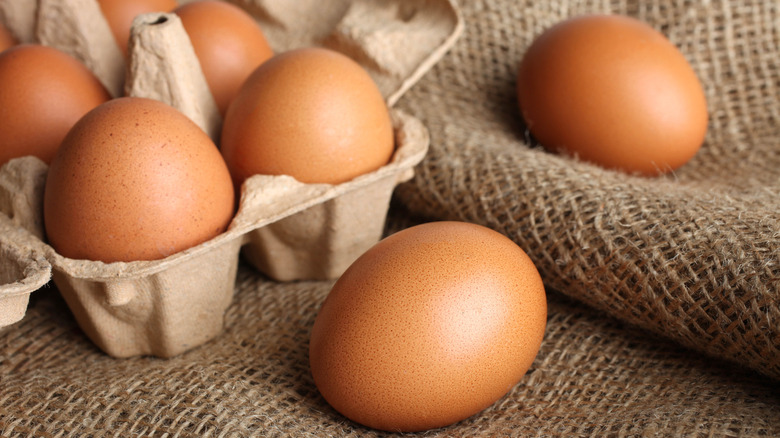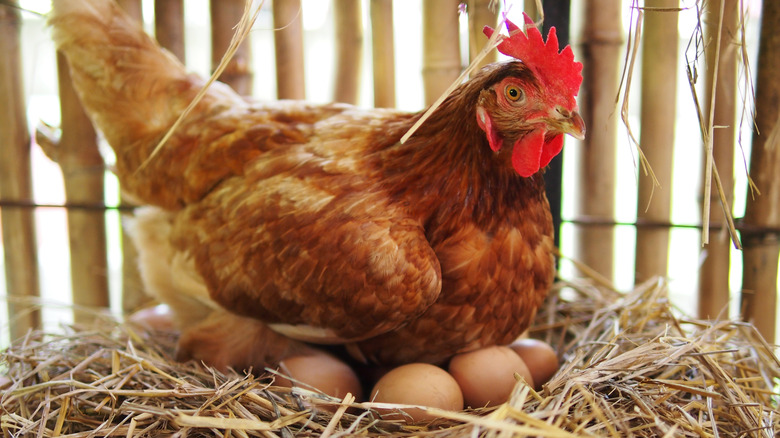The Unfortunate Truth About Egg Prices
Next time you make an omelet for breakfast, you may want to consider scaling back the recipe from three eggs to two after looking at the big price tag for a carton of eggs. Several factors have been affecting the price of eggs this year — from bird flu to rising costs for farmers. According to the Washington Examiner, farmers who raise chickens for their eggs rely on electricity for lighting and automation. With electricity prices about 15.8% higher of late, farmers are feeling the squeeze. And then there are even higher gas prices to transport the eggs to the store, per Washington Examiner.
Egg production is also down across the country. Data from the United States Department of Agriculture showed that 9.1 billion eggs were produced in August 2022, a decline of 2% compared to August 2021. That total includes eggs for eating and for hatching. The bird population is being affected by avian flu, with the Wall Street Journal reporting that about 40 million birds had died in the U.S. as of June 2, 2022. The United States is the only country being affected by bird flu, with about 50 million birds culled in 37 European countries.
The result of all of these factors is that the cost of a dozen eggs has risen and will stay high, according to recent projections.
Price of eggs at record high
As of October 6, the price for eggs is at its third record high in 2022, per Food Business News. The reason? Ongoing effects of bird flu, lack of eggs on the market, and high demand for eggs. The price this week for a dozen eggs was a record high of $4.18. A year ago, the price for a dozen eggs was closer to $1.67, per Washington Examiner (the outlet cites USDA data putting the price for a dozen of eggs at $2.33 as of September 30). The Washington Examiner says that eggs aren't alone when it comes to rising prices. Overall, the cost of food has increased by 11.4% in the past year, ending in August. Egg prices have increased by a jaw-dropping 39.8% in the past year. That compares to about 8.8% for meat, poultry, and fish.
There is some temporary relief in sight. Brian Moscogiuri, a global trade strategist with Eggs Unlimited, told Food Business News that egg inventories are starting to increase, and that should, in turn, result in lower prices. However, the demand for eggs tends to be the busiest during the fourth quarter of the year, resulting in prices traditionally increasing 30% during that time. This means eggs will likely be a pricier kitchen commodity for the time being.

